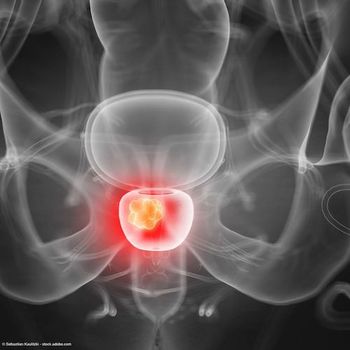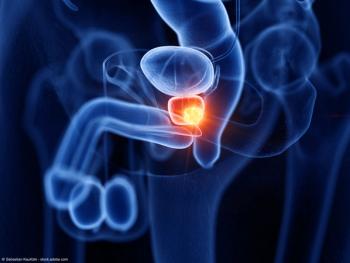
Dr. Ryan on expanding benefits of PSMA-PET imaging in prostate cancer
“PSMA-PET technology is helping urologists think about how to individualize a treatment plan for a patient based on what's discovered with this sensitive imaging modality,” says Christopher W. Ryan, MD.
Christopher W. Ryan, MD, professor of medicine, School of Medicine, the Oregon Health & Science University, discusses the benefits of PSMA-PET imaging in localized prostate cancer and beyond.
Transcript
PSMA-PET imaging has shown improved sensitivity and specificity compared to conventional imaging in patients with high-risk localized prostate cancer. And how this can help, for example, is in looking for limited oligometastatic disease; we know from data that's emerged in recent years that even in patients with limited oligometastatic disease, treatment of the primary tumor may still be indicated. So, again, in patients with limited oligometastatic disease there's still potential utility in treating the primary tumor and potentially targeting, as well, these limited sites of metastatic disease, for example, by lymph node dissection or targeted radiation therapy.
Also, if widely metastatic disease is detected by the sensitive imagingof PSMA-PET, that obviously might affect the decision making for the utility of local therapy and potentially lead to a decision against surgery of the primary tumor. And there are data emerging about whether potentially a lymph node dissection could be omitted from managing patients depending on the results of this PSMA-PET imaging. That's an evolving topic. It’s important to note, however, that there are multiple factors that can play into a model of predicting uninvolved lymph nodes.
But basically, PSMA-imaging is really helping to visualize what was not able to be visualized before in terms of micro-metastatic disease. And technology is helping us think and helping urologists think about how to individualize a treatment plan for a patient based on what's discovered with this sensitive imaging modality. It's a rapidly changing field and as experience and data continues to come in, I think we're all going to see improved options and better outcomes for men facing a diagnosis of prostate cancer.
This transcript has been edited for clarity.
Newsletter
Stay current with the latest urology news and practice-changing insights — sign up now for the essential updates every urologist needs.






